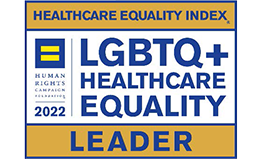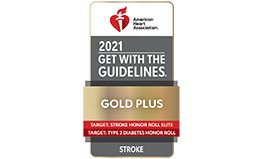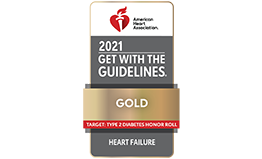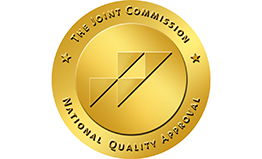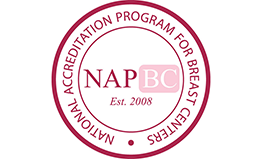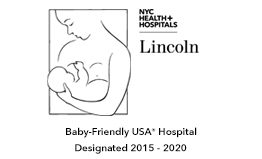The curriculum for our pediatric residents was developed to provide comprehensive knowledge and hands on experience to become a well-rounded pediatrician. Our residents gain a wide variety of experiences with rotations at NYC Health and Hospitals/Lincoln and our teaching affiliates, Children’s Hospital at Montefiore, Weill Cornell Medical College and Memorial Sloan Kettering. All schedules comply with both the New York State and Accreditation Council for Graduate Medical Education (ACGME) duty hour rules.
PGY-1 Curriculum and Responsibilities
PGY-1 trainees are the primary frontline providers for our patients on the wards and in our ambulatory care clinic. As a PGY-1 you will be responsible for taking histories, performing physical examinations and diagnostic procedures. You will be trained to document in our electronic medical record system. You will always be supervised by a PGY-2 or PGY-3 resident and the attending physician responsible for each patient’s care. You will be expected to provide supervision and teaching to third-year and fourth year medical students from St. Georges University Medical School and New York Medical College.
In the first year you gain experience in the pediatric ambulatory care clinic, the inpatient unit, well baby nursery, emergency department, and community medicine.
There are four to eight weeks of elective time in the PGY-1 year.
PGY-1 Call Schedule
For each four-week inpatient unit rotation, each intern typically has:
24 hour calls every 4 nights when on inpatient floor and well-baby nursery
- Two weekends off per month
- You will provide cross-coverage of floors while you are on community, pediatric ambulatory, and elective rotation with an average of three or four calls per rotation. In addition, you will spend a half day in your continuity clinic during all rotations except for the PICU.
PGY-2 and PGY-3 Curriculum and Responsibilities
PGY-2 and PGY-3 trainees are junior and senior residents, respectively, and focus on establishing and building upon skills acquired during the previous years. They will focus on management plans and augment their individualized curriculums to identify and build specific career paths.
Developing supervisory, teaching and evaluation skills is another goal for junior and senior residents. PGY-2s and PGY-3s typically have one to two four-week rotations on the pediatric inpatient unit, two to three four-week rotations in the NICU, one four-week rotation in the PICU, one four-week rotation in the pediatric emergency department (PGY-2), and one four-week rotation in acute care (PGY-3). All senior residents will have a half day continuity clinic per week. Based on individual interest and career trajectory residents have ability to tailor the schedule based on accordingly. In addition, PGY-2s have advocacy rotation and PGY-3s have a teaching block and board review block.
PGY-2 and PGY-3 Call Schedule
Senior residents work no more than 27 hours (24 hours for patient care plus three hours for transition) during a call and get at least one day off per week. We aim to give all residents one to two weekends off per month. Senior residents on electives provide coverage in the PICU taking approximately one to three calls per rotation.
All residents receive four weeks of vacation per year in one-month increments for PGY-1, and in two 2-week increments for PGY-2 and PGY-3 residents. We make every effort to accommodate your scheduling requests.
Rotations:
The residency program includes rotations based at Lincoln Hospital as well as at other affiliated medical centers in New York City.
ROTATIONS AT LINCOLN
- Inpatient
- ER
- Outpatient
- Nursery
- NICU
- Community
- Advocacy
- Neurology
- Allergy
- Endocrinology
- Infectious Diseases
- Cardiology
- Dermatology
- Adolescent
- Child Development
- Radiology
- Child Psychiatry
- Anesthesiology
- Child Advocacy (C.A.S.A)
- Teaching
- Acute Care
- Study/OPD
OUTSIDE ROTATIONS
- PICU (Children’s Hospital at Montefiore (PGY-2 and PGY-3)
- Cardiology (Children’s Hospital at Montefiore/Lincoln)
- Hematology Oncology (Memorial Sloan Kettering Cancer Center)
- Renal (NYP/Weill Cornell Medical Center)
- Surgery (Children’s Hospital at Montefiore)
Pediatric Intensive Care Unit: The Pediatric Critical Care Unit at Children’s Hospital at Montefiore is a 26-bed Pediatric Critical Care Unit, in which the primary team takes care of severely ill patients with surgical and medical conditions. Pathologies that can be seen in this rotation include acute respiratory failure, septic shock, cardiothoracic surgery, solid organ transplant and neurosurgery. As a resident, you will also be exposed to other methods of advanced therapeutics, including non-conventional respiratory support, ECMO and renal replacement therapy. For more information, please https://www.cham.org/specialties-and-programs/critical-care-medicine/our-expertise
Pediatric Oncology: The Memorial Sloan Kettering Cancer Center is a cancer treatment and research institute, recognized as one of the best in the world and ranked as the “Best Hospital” for cancer care for over 25 years, according to U.S. News & World Report. As a resident, you will take care of patients, together with leading experts in the treatment of pediatric malignancies and immune deficiencies. For more information, https://www.mskcc.org/pediatrics.
In addition, residents have the opportunity to choose a pediatric cardiology rotation which is split between Lincoln and Children’s Hospital at Montefiore, a pediatric surgery rotation at Montefiore and a pediatric nephrology at NYP/Weill Cornell Medical Center.
Additional learning experiences
Board Review Program: All residents are welcome to attend the yearly board review course provided from January to June, every Thursday 5-7 pm in order to prepare for the Pediatric Board Examination. Our multiple teaching activities has contributed to a board pass rate of 88% over 3 years.
Monthly Study Topic: Additional academic activities include monthly educational topics and a corresponding exam, ongoing individualized feedback during each rotation, a 6 month in-person evaluation with the program director and an annual overall evaluation. All residents have mandated protected time for educational activities daily.
Chief Residents: Each year, three PGY-2 residents are selected to also act as chief residents for the following academic year. They are responsible for organizing the social activities, educational programming, and they actively participate in the teaching process.
![]() COVID-19 ALERT: Find COVID-19 Testing Sites. COVID-19 Vaccine Info. New Visitor Policy. Make a Donation.
COVID-19 ALERT: Find COVID-19 Testing Sites. COVID-19 Vaccine Info. New Visitor Policy. Make a Donation.




